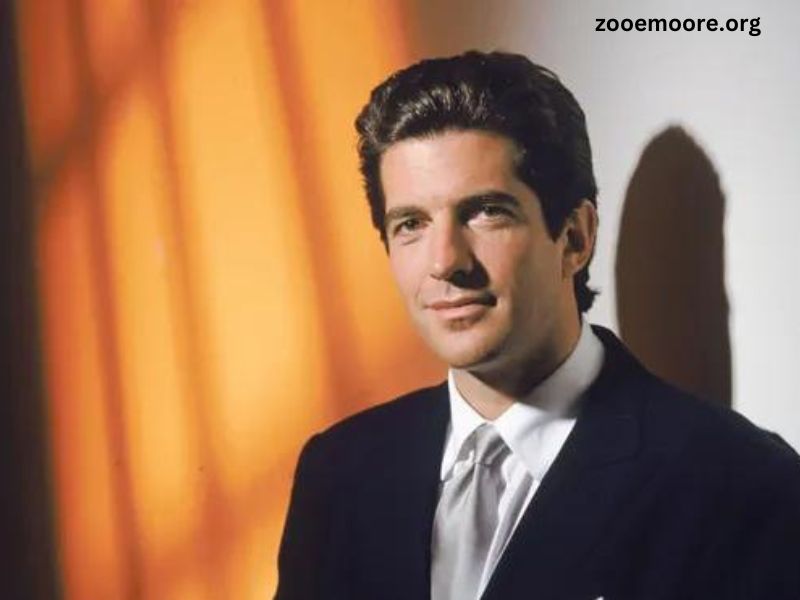John Fitzgerald Kennedy Jr., often known as JFK Jr., was a prominent figure in American public life. The son of President John F. Kennedy and Jacqueline Kennedy Onassis, he was born on November 25, 1960, into a world of political royalty and media scrutiny. His life, though tragically brief, was marked by significant personal achievements and enduring public fascination. This article delves into his early years, career, personal life, and the lasting legacy he left behind.
Early Life and Family Background
John F. Kennedy Jr. was born into one of America’s most storied families. His father, John F. Kennedy, was the 35th President of the United States, while his mother, Jacqueline Kennedy Onassis, was a beloved First Lady known for her elegance and style. JFK Jr.’s early years were shaped by the intense media attention surrounding his family and the tragic events that befell them.
At just three years old, JFK Jr. was thrust into the public eye when his father was assassinated in Dallas, Texas, on November 22, 1963. The world watched as the young boy saluted his father’s funeral procession, a poignant moment that cemented his place in the hearts of many Americans. After his father’s death, JFK Jr. and his sister, Caroline, were raised by their mother, Jacqueline, who sought to provide them with as normal a childhood as possible.
Education and Career Beginnings
JFK Jr. attended the prestigious Brown University, where he graduated with a degree in history in 1983. His academic success was followed by a more personal pursuit: he sought to understand his father’s legacy and to carve out his own path in a world that often seemed determined to define him by his lineage.
After Brown, JFK Jr. attended the New York University School of Law, graduating in 1989. Despite his academic achievements, his professional path was marked by a desire to make a difference in his own way. He worked briefly as an assistant district attorney in New York City, where he was known for his commitment to justice and his hands-on approach to legal practice.
The Launch of George Magazine
In 1995, JFK Jr. took a significant step in shaping his public identity with the launch of George magazine. Named after George Washington, the magazine aimed to blend politics and pop culture, reflecting JFK Jr.’s belief in the importance of making politics accessible and engaging to the general public. Under his leadership, George magazine became known for its unique approach, featuring interviews with celebrities and politicians, as well as coverage of current events.
The magazine’s success was a testament to JFK Jr.’s vision and his ability to bridge the gap between highbrow politics and popular culture. It also highlighted his dedication to creating a platform for informed and entertaining political discourse. However, despite the magazine’s popularity, JFK Jr. faced significant challenges in managing the publication, including financial difficulties and competition from other media outlets.
Personal Life and Relationships
John F. Kennedy Jr.’s personal life was as closely followed by the media as his public endeavors. In 1996, he married Carolyn Bessette, a fashion publicist. The couple’s wedding was a highly anticipated event, and their relationship was closely scrutinized by the press. JFK Jr. and Carolyn Bessette became one of the most glamorous couples of the 1990s, but their marriage was not without its difficulties.
Despite their public image of perfection, the couple faced numerous challenges, including intense media scrutiny and personal struggles. Their relationship was often in the spotlight, and the pressures of fame and public expectations weighed heavily on them. Nonetheless, JFK Jr. and Carolyn appeared to share a deep bond, and their relationship was marked by a genuine affection for one another.
The Tragic Accident
On July 16, 1999, John F. Kennedy Jr., his wife Carolyn Bessette Kennedy, and her sister Lauren Bessette were tragically killed in a plane crash. JFK Jr. was piloting a Piper Saratoga aircraft from New Jersey to Massachusetts when the plane went down in the Atlantic Ocean near Martha’s Vineyard. The cause of the crash was attributed to pilot error, and the bodies of JFK Jr., Carolyn, and Lauren were eventually recovered from the ocean.
The news of the crash sent shockwaves through the nation, with millions mourning the loss of a figure who had come to symbolize a sense of hope and possibility. JFK Jr.’s death was a profound loss not only for his family but for the many people who had admired him from afar. The circumstances surrounding the crash were the subject of extensive media coverage and speculation, further amplifying the sense of tragedy and loss.
Legacy and Impact
John F. Kennedy Jr.’s legacy is multifaceted and continues to resonate long after his untimely death. His contributions to journalism, his efforts to engage the public in political discourse, and his enduring charm all play a part in how he is remembered.
George magazine, despite its eventual closure in 2001, left a lasting impact on the media landscape. JFK Jr.’s approach to blending politics and pop culture demonstrated his belief in the importance of making politics accessible and engaging. His efforts to create a platform for informed discussion and his commitment to bringing a fresh perspective to political journalism are remembered fondly by those who knew him and by those who followed his career.
Additionally, JFK Jr.’s personal life and the public’s fascination with his family have contributed to his lasting legacy. The Kennedy family, with its storied history and tragic losses, remains a powerful symbol of American politics and culture. JFK Jr.’s place in this narrative, as a symbol of youthful promise and potential, continues to capture the imagination of the public.
In the years since his death, various books, documentaries, and articles have explored JFK Jr.’s life, offering new insights and perspectives on his achievements and struggles. These works contribute to the ongoing conversation about his impact and the ways in which he continues to inspire and intrigue people.
Conclusion
John F. Kennedy Jr. was a complex figure whose life was marked by both tremendous promise and profound tragedy. Born into a world of political prominence, he navigated the challenges of fame with a mix of personal determination and public expectation. His career in journalism, his personal life, and the tragic circumstances of his death all contribute to a legacy that remains compelling and relevant.
As we reflect on JFK Jr.’s life, it is clear that his story is one of both triumph and loss. His efforts to engage the public in political discourse, his commitment to his own vision, and his enduring charm continue to resonate. In remembering John F. Kennedy Jr., we honor not only his accomplishments but also the enduring impact of his life on the world around him.



